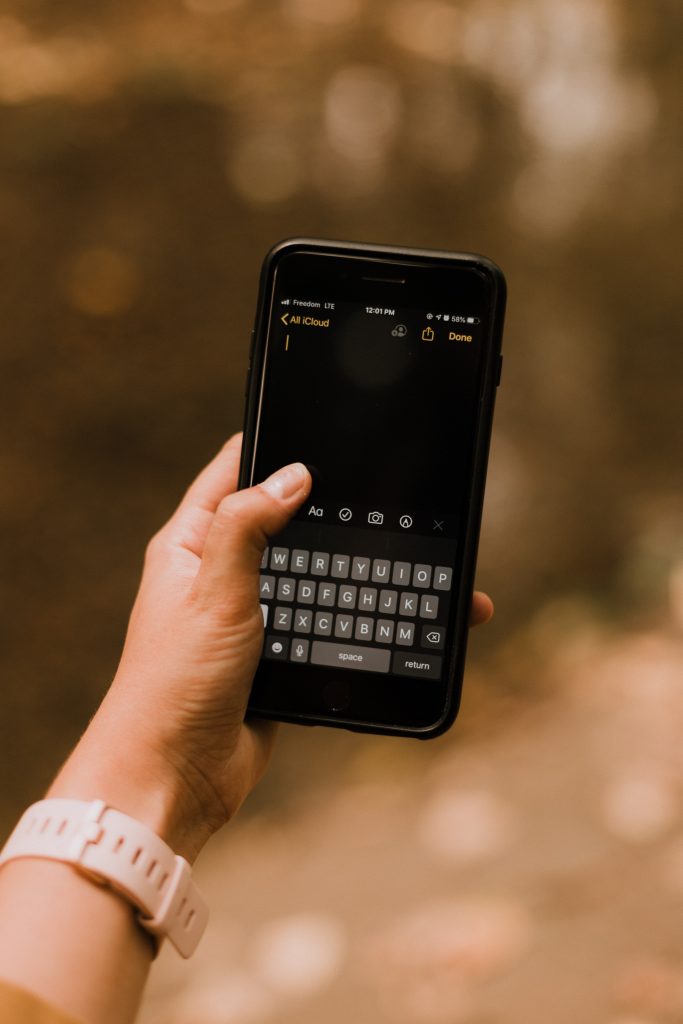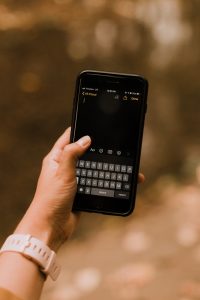Mobile Equipment Database and Anti-Theft Solutions
Extract from the book “Nigerian Telecommunications Law and Regulations”
Rotimi Akapo, Lateef Bamidele & Glory Ogungbamigbe.
Every mobile device (i.e. handsets, dongles, tracking devices, netbooks, etc.) has a unique International Mobile Equipment Identity (IMEI) number which enables mobile networks on which they are used to identify the device for the primary purpose of generally tracking the device on the MNO’s network and ascertaining products and services provisioned for it.[1] The GSM Association (GSMA) issues IMEI numbers to Original Equipment Manufacturers (OEMs) and manages the global IMEI system through the global IMEI Database (IMEI DB).[2]
In time, IMEI database has been adapted for other uses such as combating crime such as theft of mobile handsets and the criminal use of such devices. Given the global dimensions of such crimes, the GSMA and several jurisdictions have co-operated to set up Central Equipment identity Registries (CEIR) which allows for the blacklisting of implicated devices and prevents their further use on individual networks across other participating jurisdictions.[3]Equipment registries are also very useful for crime detection and prevention.
There is currently no CEIR framework in Nigeria, following the failure of an earlier attempt in that regard. That said, the NCC recently announced its intention to introduce a Mobile Device Management System (MDMS) which would serve as an enhanced CEIR.[4]
CEIR implementation typically raises a few legal and regulatory issues, some of which relate to privacy and legal liability. These issues include the following:
- Whether the provisions of the NDPR and other data privacy protection instruments will apply to CEIR databases given that the IMEI is unique to the device and may therefore be used to identify the owner once it is tied to an MSISDN (Mobile Station International Subscriber Directory Number). In resolving this issue, it should be noted that IMEI databases are necessary for network functions pertaining to tracking users (for the purpose of terminating calls) and resolving network issues related to QoS. It would therefore be impractical to restrict the uses of the database by the networks as long as they respect the privacy requirements discussed above.
- A vast number of devices in use in Nigeria (and other developing countries) are marked with cloned or duplicated IMEIs, meaning that a large number of devices may have the same IMEI.[5]In addition, many devices are second-hand/used devices which may have been stolen, but are purchased for value by users. The question then arises as to what recourse a subscriber would have where a device honestly purchased for valuable consideration without notice of its dubious provenance is blacklisted?
- Conversely, what recourse would a subscriber have (and against who) where the network is unable to implement a blacklisting request because the device bears a cloned/duplicated IMEI and that blocking that IMEI would deny many other users the ability to use their legitimately acquired handsets?
It is expected that these and other issues will be conclusively addressed in the regulatory instrument for the implementation of the CEIR/MDMS system.
[1]Pages 483-485 of the book “Nigerian Telecommunications Law and Regulations” by Quasim Odunmbaku and Rotimi Akapo
[2]For details on how this is done, please see the GSMA website on the Terminal Steering Group/IMEI Database < https://www.gsma.com/aboutus/workinggroups/terminal-steering-group/imei-database> last accessed on 29 March 2020.
[3]See the international dimensions of the issue in the report by Nick Parker and Mike Sullivan, ‘Call of Looty – Nigerian gangs making MILLIONS from phones nicked in UK phone theft epidemic’ The Sun Newspaper (UK)(online edition, 2 April 2018) < https://www.thesun.co.uk/news/5957717/nigeria-black-market-fuels-britain-moped-theft/> accessed on 20 June 2019 – it should be noted that the mobile phone dealers in the market sensationally highlighted in The Sun’sreport have in fact since taken the commendable initiative of setting up a documentation and alert system which enables them to identify stolen devices and alert the police accordingly – see the report by Obinna Ibeawuchi, ‘End of the road for theft and stolen phone menace in Nigeria as CAPDAN endorse Fonreg’ Techbrandreview.com(online, 2 May 2017) <http://techbrandreview.com/end-of-the-road-for-theft-and-stolen-phone-menace-in-nigeria-as-capdan-endorse-fonreg/> accessed on 20 June 2019.
[4] See Balancing Act, ‘Nigeria’s Government cancels NCC-Netvisa mobile phone anti-theft payment deal’ Balancingact-Africa.com (online, 2 October 2009 <https://www.balancingact-africa.com/news/telecoms_en/14848/nigerias-government-cancels-ncc-netvisa-mobile-phone-anti-theft-payment-deal>accessed on 19 July 2019 – the arrangement required operators to deduct CEIR registration fees from subscribers and to pay same to a service provider licenced by the NCC; it was shelved partly due to public outcry over the proposed deductions – the new proposal is reported by Samson Akintaro, ‘NCC to disconnect fake phones from networks’ New Telegraph(online edition, July 18, 2019) < https://www.newtelegraphng.com/2019/07/ncc-to-disconnect-fake-phones-from-networks/> accessed on 19 July 2019.
[5]Cloning of IMEIs is typically done by fake and grey market manufacturers to save cost and/or evade customs or other duties/taxes – the ITU sees cloning of IMEIs as a major issue globally since it also enables perpetrators to counterfeit devices and ship substandard handsets which compromise network quality and consumer experience – see ITU, Outcomes of the ITU Workshop Global approaches on combating counterfeiting and stolen ICT devices(Geneva, 23 July 2018) for the ITU’s recommendations on regulatory actions and international co-operation to tackle the issue.
ROTIMI AKAPO rotimi.akapo@advocaat-law.com
LATEEF BAMIDELE lateef.bamidele@advocaat-law.com
GLORY OGUNGBAMIGBE glory.ogungbamigbe@advocaat-law.com
****************************************************************************************
DISCLAIMER:
This publication is not a piece of legal advice. The opinion expressed in this publication is that of the author(s) and not necessarily the opinion of Sabi Law Foundation, its staff and partners.
FREE PUBLICATION (Get Published):
You too can publish your law articles for free on our website (www.LearnNigerianLaws.com) and enjoy increased visibility and readership on all our social media handles. No fess, no charges, no conditions and no submission guidelines are required. Just send your article and picture to our email (lawarticles@learnnigerianlaws.com). We want your voice to be heard, as we all increase legal awareness, together! It pays to Sabi Law (understand law)! #SabiLaw
KEEP IN TOUCH:
Get updates on all the free legal awareness projects of Sabi Law Foundation (#SabiLaw) and its partners, via:
Facebook Page: @LearnNigerianLaws
Instagram: @LearnNigerianLaws
Twitter: @LearnNigeriaLaw
YouTube: Learn Nigerian Laws
WhatsApp Groups via: (https://chat.whatsapp.com/L7h4f1exItZ38FeuhXG4WN),
WhatsApp Chat via: (+234 903 913 1200)
Telegram Group: (https://t.me/LearnNigerianLaws),
Facebook group: (https://www.facebook.com/groups/129824937650907/?ref=share)
or visit our project Website: (www.LearnNigerianLaws.com)
ABOUT US & OUR PARTNERS:
This publication is powered by www.LearnNigerianLaws.com {A Free Law Awareness Program of Sabi Law Foundation, supported by the law firm of Bezaleel Chambers International (BCI).} Sabi Law Foundation is a Not-For-Profit and Non-Governmental Legal Awareness Organization based in Nigeria. It is the first of its kind and have been promoting free legal awareness since 2010, through the efforts of its founder.
DONATION & SPONSORSHIP:
As a registered not-for-profit and non-governmental organisation, Sabi Law Foundation relies on donations and sponsorships to promote free legal awareness across Nigeria and the world. With a vast followership across the globe, your donation will assist us increasing legal awareness, improving access to justice, and reducing common legal disputes in Nigeria. Make your donations to us via :https://sabilaw.org/donate/ or contact us for sponsorship and partnership, via: sponsorship@learnnigerianlaws.com, sabilaw.ng@gmail.com or +234 903 913 1200.
****************************************************************************************





















































